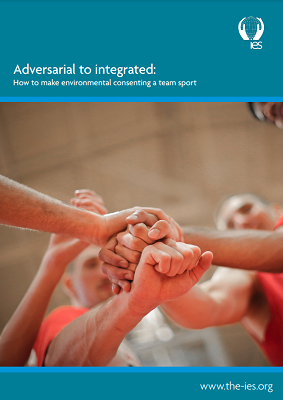Public opinion over recent years has made clear that people want a healthy environment, but they also need social and economic outcomes including housing, infrastructure, and renewable energy projects. Sustainable development shows that mutual social, economic, and environmental benefits can be achieved together, so environmental consenting needs to work in a way that produces multiple benefits at the same time.
In many of these processes, the potential for multiple benefits has been jeopardised by systems which have become unnecessarily fragmented or adversarial. Where social outcomes are perceived as working against environmental outcomes, it becomes harder to achieve either. Where developers, Consenting Authorities, and environmental experts do not work in tandem with one another, the best outcomes are rarely realised.
Best practice demonstrates that another option is available. Even without reforming the system itself, the way that participants take part in environmental consenting can make a real difference.
Reimagining environmental consenting as a team sport allows everyone to work together for mutual social, economic, and environmental benefits. Rather than a system built on false dichotomies, environmental consenting can support sustainable development where everyone wins together.
Achieving this aspiration in practice follows seven principles:
- All involved parties act as one team working towards sustainable development.
- The public are the beneficiaries of social and environmental outcomes.
- Disagreement is viewed as an asset which can assure high standards.
- Environmental consenting is purpose-driven and proportional.
- Systems are rational, coherent, flexible, and accessible.
- Decisions are fair, robust, and informed by evidence at an early stage.
- Processes are aligned with one another using framework-level governance.
Throughout the report, those principles are supported by practical guidance on how to make those aspirations real through an approach which emphasises trust, purpose, flexibility, and communication. Recommendations are also outlined for policy makers seeking to reform consenting processes to embed these aspirations from the outset.


